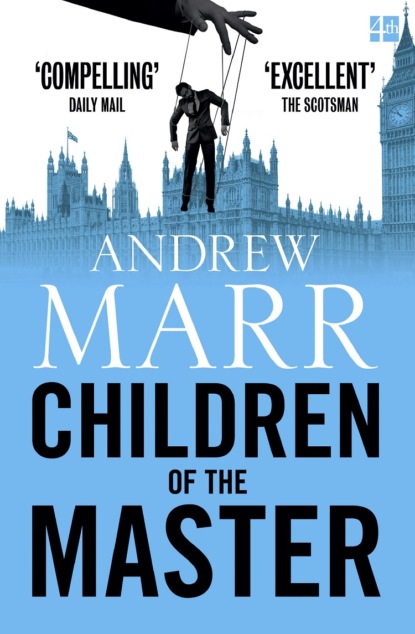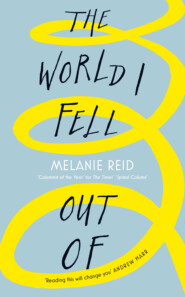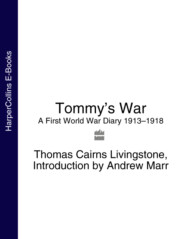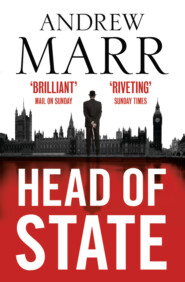По всем вопросам обращайтесь на: info@litportal.ru
(©) 2003-2024.
✖
Children of the Master
Автор
Год написания книги
2018
Настройки чтения
Размер шрифта
Высота строк
Поля
The Master
There was literally nobody in Glaikit who David Petrie would have considered less likely to recruit him into a real political career than Tony Moretti. They’d known one another since school. Tony had been a couple of years ahead of Davie, and he was the same stoop-shouldered, lank-haired malcontent now that he had been back then. He’d been a Yesser, of course. The son of the local chip-shop owner, he was now a journalist – what else? – working for the Scottish Socialist newsletter, which at least kept him virtuously poor. He’d regularly denounced Davie’s father and the Labour clique in the council, which rather put him up in Davie’s estimation. Years of serving in a fog of cooking fat had given him a red, slightly pockmarked face, and his politics were appropriately rancorous; he seemed somewhere to the left of Galloway and Sheridan. So when Davie opened his door one evening to see Tony sternly staring back at him through his thick glasses, he had been unwelcoming – polite, but unwelcoming.
‘Weel, Moretti. This is a surprise. Come to see how the “embourgeoisificationists” are doing?’
‘Naw, Mr Petrie. Here with a story. Need your help.’
Eyebrows raised, Davie had let him in, helped him off with the scruffy, revolutionary-badged leather coat, and made him a cup of tea. It turned out that Moretti had one hell of a story; one that would change Davie’s life.
It all went back to the Forlaw massacre, he explained. A deranged gunman, a loner called Tom Hooper, had killed fourteen schoolchildren getting off a Scouts bus, as well as the driver and a passing policewoman. He’d then turned the gun on himself, but had succeeded only in blowing off part of his jaw. Patched up, convicted, voiceless and despised, he was now one of Scotland’s most heavily protected prisoners, at HMP Grampian. It turned out that Hooper had been involved in anarchist as well as survivalist groups, and Moretti had been working on a theory that somehow he’d been drugged before the attack, as part of a conspiracy against the far left. To Petrie’s surprise, Moretti told him that he’d been allowed to visit Hooper in jail. That was why he needed his help.
‘Seems a bloody mad conspiracy theory to me, Tony. I hope that’s not why you’re here.’
‘Naw, Mr Petrie, that was a’ways daft. It’s what he told me efter that made my hair curl.’
‘Looks straight enough to me, Tony. And less of the “Mister”. Fire away then.’
‘Weel, Petrie, it wis a sore long bloody trek to get to see the man at all. His lawyers didn’t want me to go. This guy’s so hated they don’t want another word written about him – ever. Time and memory loss; they say that’s his best hope. Mebbe so. But, see, I didn’t understand why anything mattered to that guy any more, a man who’d been political, after all. Family don’t visit, naebody visits. Naebody asks what he knows. So I said I was writing a book. A lot of hassle with the prison service, right, but at last I get permission to contact the guy directly. He writes back: Okey-dokey, come over. The prison’s south of Peterhead. New, like. Train to Aiberdeen, then the bus. Guys like him are kept on their own corridor, bottom floor. They didnae want me wi’ the other visitors – with a’ the neds, I guess, he’s had a few beatings already – so we meet in his cell, wi’ the screw standing by. With me so far? Right.
‘I asks Hooper to tell me about his political views. He just shakes his heid. I tell you, Mr Petrie, he’s a terrible sight. Nothing much on the wan side beneath his cheek, just a great hanging sack of purple, and lang white scars. He’s got a wee mouth left on the other side. He can suck up food through a straw, but he cannae speak.’
Davie felt queasy. Tony Moretti was not what he’d expected. He was composed, direct and unembarrassed. He seemed to have human sympathy for this man who Scotland was trying to forget. ‘That’s terrible. I thought these days – you know, reconstructive surgery?’
‘Naw, not for the likes of him. Anyway, I ask him ma questions. But he’s no’ interested in a’ that tripe. He just writes some notes of his own.’ Moretti delved into a scuffed shoulder-bag. ‘I brought them.’
There were a few short notes written on torn pieces of lined paper, in pencil and in awkward capital letters – not the writing of an educated man.
WRONG I HAD GUN AT ALL
POLIS SAID I COULD NOT
TOLD GO STUFF THEMSELVES
MINISTER/NOS WHAT I CAN SAY
NO. BODY BELEEFS ME
‘Not sure I can make head or tail of these, Tony. What’s he saying?’
‘Well, I asked him, of course, and he can nod and shake his head. Turns out the local police tried to get his gun licence revoked. He’d always been a weird one – reputation for hanging round schools, that sort of thing. And he did have pretty wild views. But the police recommendation was squashed, overruled, whatever, higher up the chain.’
‘Who by?’
‘Good question. I tracked down the chief copper from back then. First off, he didnae want to talk to me – “troublemaker” and all that – but I wore him down. Turns out that quite a lot of Hooper’s story is true: the copper did try to get Hooper’s firearms licence removed, he told me, but the chief constable intervened. My man didnae argue. Nae point. Pension, and a’. Efter we were finished he started greeting. Man o’ seventy years, but.’
‘What about the chief constable? Did you go to see him?’
‘He’s dead now. But wan step further up the ladder, the guy Hooper says was behind it all is very much alive and kicking. Lord Auchinleck these days, Tory minister at the Home Office at the time. Freemason, I’m thinking. Big golfer, and – you guessed it – best pal of the dear departed chief constable.’
One step at a time, Davie thought to himself, and you could end up taking a very weird journey. ‘I think that’s what they call circumstantial. Why would Lord Auchinleck concern himself with the gun licence of an obscure saddo and – forgive me, Tony – political nutter, living in a small town in Scotland?’
Moretti smiled a slow, sad smile, and his dark eyes caught Davie’s.
‘Bingo! Right damn question again, Mr Petrie. You could make a useful legman for the newsletter yet.’
He paused, and his voice became slower, deeper. ‘Have you heard of the Cricklewood Boys’ Home affair? No? Well, this is where it gets verra interesting. It wasn’t a proper home, apparently, more a kind of haulfway hoose for lads coming out of young offenders’ institutions and council care. Lots of skinny, fucked-up, scared wee boys living there in the 1980s and 1990s. You ken where I’m going?’
‘I’m afraid so.’
‘Well, so I am. It was a wee paradise for paedos. Early days of the internet. Harder back then. Nods and winks. Men came from all over. Tom Hooper, for one. Politicians as well.’
‘A certain chief constable? A certain Lord Auchinleck?’
‘Aye. And aye. So they couldn’t have wee Tommy Hooper shooting his mouth off, could they?’
‘Not the most felicitous expression, Moretti, and still circumstantial. But – sweet Jesus. A sex ring cover-up that led to the Forlaw massacre. That’s fucking dynamite.’ David Petrie exhaled. He felt sullied, as if he needed to take a shower. He felt himself shaking with anger as well. He thought of his two boys, and those waifs in a north London hellhole. It was like something out of Dickens. No. It was worse than that.
‘So why’d you bring this to me, Tony? It’s the biggest story of your career.’
‘Well, I guess that’s it – the career. I’ve got strong principles, Mr Petrie, the kind I’m afraid you and your like will never understand. But that makes me suspect in the eyes o’ the wider world. There’s a huge effing cover-up gone on. It isn’t just Auchinleck – there’s a whole bunch of them. I wouldn’t be surprised Labour as well as Tories, Liberals too. We go big on this in the newsletter and they’ll just stamp on us a’. Bring in the high-heidyin lawyers, criminal libel, you name it … Just some kind of left-wing conspiracy mania. But you – you’re different. The chancy wee footballer, son of the big man, wha’s dribbled and dodged his way intae the Premier League. You’ve spoken at national conferences. You’ve met the likes of Miliband and Straw, and that top shite Murdoch White. Wan of them speaks out on this in public, and the balloon goes up. It a’ goes sky high. It’ll help Labour in the next election – and Christ knows, you’re going to need some help under that bampot Grimaldi. It’ll help you too, because you’ll get the praise for bringing the story out. And it’ll help me, because you fucking well credit me for this or I’ll tear your balls off, Mr Petrie, no offence. We’ll get it into the nationals. And then we’ll get the bastardy bastards, and give those poor wee boys the justice they’ve been denied.’
David Petrie realised two things. First, that he’d badly underestimated Tony Moretti. Second, that he had no choice. Politics, if it was about anything, was about justice. Boyhood should be sacred. His job now was to take this story and rub the faces of a few men in the shit until they cried for mercy. To his surprise he found himself feeling elated. Energetic. He wasn’t bored any longer.
On an Island (#ulink_806f68ef-f7d8-59e7-93ac-70cab573763f)
Always, the politician must inspire people; but not in a ridiculous way, obviously. Not too much …
The Master
When, a few weeks later, the former foreign secretary Murdoch White, himself an Ayrshire man, who had retired to the Isle of Arran after the Egyptian war, called him up and asked him to come for a visit, and to stay the weekend, Davie Petrie was ready.
Most of Labour’s leading figures from Scotland, back in the day, seemed to have died early, or faded away from politics: Smithy himself, big Donald and wee Cookie all went far too early, while Derry, Brian Wilson up in the Highlands and John Reid, now running Celtic, had absented themselves from political life. Murdoch White, however, was still a player in his seventies, a tall, gangling, balding man with a hangdog face, he had kept the flag flying against the SNP and was a regular on the Scottish edition of Newsnight – variously known as Wee Newsnight and Newsnicht. He had retired to play golf and fish, but found that he missed the excitement of Westminster.
The converted manse he had bought looked more like a small baronial pile, white-harled and spacious. Ostensibly, he had lured Davie there to talk about building a glass-fronted extension looking out over the Atlantic breakers. The two men spent most of the weekend walking together and staring at the view, or sitting over a chunky glass – malt for White, gin and tonic for Davie – and, as Davie put it to Mary later, ‘Just blethering.’
Not just. Murdoch needed to know whether Petrie was ‘sensible’. By this he meant, was he basically pro-American, sound on Israel and pro-business?
‘A long time ago, Davie, when you were just a bairn, the Labour Party made itself unelectable with basically communist views. The Master, with quite a few of us helping him, changed all that. He showed that we can have social justice and prosperity at the same time; if we don’t shoot for the moon and if we accept the realities of the world, we can make life better for folk, and they’ll trust us. So not too much of the teenage Trotskyism, eh Davie? Another glass?’
‘Small one, Mr White. You can rely on me. I’m solid working-class, and I won’t sell my people out. But you know I’m a businessman first and foremost. I deal in balance sheets. Hiring and firing. Foreign markets don’t concern me – yet – but I was born with a good hard head on me. I’m not very keen on the Yanks, but who else do we have these days? The fucking Palestinians don’t make me weep.’ He rapped his forehead with his knuckles. ‘Hard heid.’
‘Europe?’
‘Ach, it’s a corrupt old bunfight, but there’s too much money there. By hook or by crook, we have to get back in. No’ the euro though.’
‘As for yourself, what do you want, Petrie?’
‘You won’t be expecting this, Mr White, but the real answer is justice. There’s a guy I want to bring down, and I’m going to bring him down if it’s the last thing I do.’









